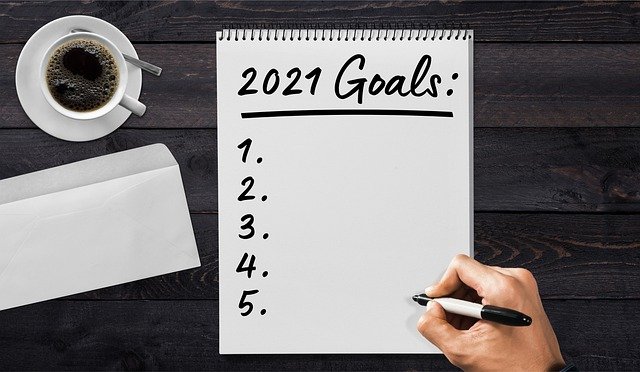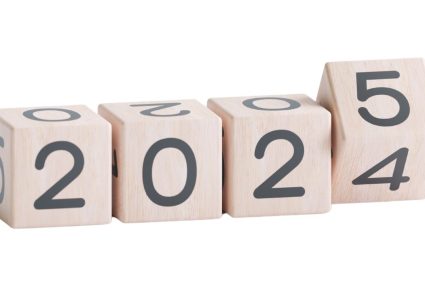Winning At New Year’s Resolutions

By Agnes Chikukwa Hove
I trust that you had a wonderful, warm, and special Christmas.
For many of you, this coming week will be spent relaxing, cleaning, and… hopefully making plans for 2021. That is, if you’re like me! 🙂
I LOVE the week between Christmas and New Year’s Day.
It’s a great time to reset, reflect, set intentions and make resolutions for the year to come. Well, here goes…

Next year I will. ……
……..lose weight.
…….exercise more.
…….save more.
…….wake up earlier.
The New Year gives you the perfect opportunity to get your act together and make some changes, whether it’s throwing away bad habits or trying to pick up good ones. While some of us (very few) follow through with our resolutions, there’s a number of us (basically everyone) who slowly forget the New Year’s plans and find ourselves back to being our last year’s selves. No, but seriously, a University of Scranton research1 study suggests that only 8 percent of people achieve their New Year’s Resolutions, or goals. So, as determined as you are, I sincerely hope you are all successful in your resolutions.

New Year’s resolutions are fabulous when you plan to make positive changes in your life, whether it’s going to the gym, waking up earlier, or saving money. The problem with resolutions is that most people rarely follow through with them. In fact, US News and World Report2 projects that 80 percent of resolutions fail by February.
So, if you have had difficulty sticking to your resolutions for the New Year, here are a few tips on how to set and follow through with New Year’s Resolutions or real life goals. This applies to both professional and personal goals. I assume you have all heard about SMART goal setting, so I won’t regurgitate that information here.
The first and most important tip is, don’t bite off more than you can chew: the most common reason why people fail to complete their resolutions is because they have set large lofty goals that are too broad to achieve. Take the ones that I wrote above…..to lose weight or maybe to exercise more. Those are large goals. The question is, do I want to lose 1 kg or 20 kgs?

The best way to do it, is to break the larger goals down into a number of mini goals. Then break down each goal and set up a realistic timeline.
Let’s try to apply this principle to the ‘I’m going to lose weight- so no more junk food’ resolution.
Try to change the wording of the goal to a more specific, achievable resolution, such as:
I will lose a total of 4 kgs in 8 months. I will achieve this goal through the following actions:
- I will add 10 minutes to my workouts.
- I slowly cut junk food out of my diet and will only eat junk food only once a week.
- I will cut my carbohydrates in my diet by 15%.

Break the goals down into small bites. If maybe, you currently go to the gym twice a week, try to add 5 minutes to your 1st time the first half of January, and then add 5 minutes to both times the second half of the month. In February add 5 minutes to the first time the first half of the month and then to both times the second half. You are now working out 10 minutes longer and most likely will continue your plan to bump up your workouts to three times a week!
If you are reducing junk food to once a week, make a plan at the beginning of each week. Look at your calendar. When will you find yourself too busy to cook- or when might you be tempted to eat junk food? Can you prepare a wholesome meal in advance and place it in the fridge or freezer. By planning ahead, you won’t find yourself too tired or hungry to cook and then ‘mess up your resolution’ by eating more junk than planned.
If cutting carbs was your resolution, begin by recording your current intake. Knowing where you stand now will allow you to set a new goal. If you want to reduce by 15%, plan on a 5% reduction in the first two weeks, and an additional 5% for the second two weeks and then another 5%. By February you will have reached your goal, and because you did it in small bites, you will be much more likely to continue the plan.
Here are a few more things to remember.

- Set weekly and monthly goals.
- Keep a progress report and celebrate each accomplishment, no matter how small, rather than focusing on the grand result.
- Be patient and realise that reaching a goal takes time.
- If you stay with it, you will recondition your mind and reach your target.
- Enjoy the journey. Remember you are working towards a healthier version of yourself! It shouldn’t be a burden, but a joy!
As Benjamin Franklin once said, ‘If you fail to plan, you are planning to fail!’
The bottom line is – you can become part of the 20 percent that follows through on their New Year’s resolutions. When you set out to conquer the world all at once, it will end in frustration and failure; however, if you take one small thing at a time and slowly implement each step, you can accomplish all of your goals – and more!

Agnes Chikukwa Hove, Brief Profile
Agnes finds fulfilment in being a Financial Wellness Coach. She coaches individuals, couples and organisations on effective personal financial management, and has effectively done so for the past 8 years. Agnes is a seasoned strategist who is currently the Chief Executive Officer of Sequor Consulting a Pan-African SME Development, Consulting and Advisory organization. She is also the Treasurer at African Women in Agriculture (AWiA) a women’s empowerment organization. She possesses a Master of Science (MSc) Degree in Strategic Management, a Business Management (BBA) Degree and a Diploma in Nursing.
Social media handles:
Twitter: www.twitter.com/mom_ac
LinkedIn: https://www.linkedin.com/in/agnes-chikukwa-hove
Facebook: www.facebook.com/agnes.chikukwahove
Instagram: www.instagram.com/7agnes4h
Website: www.sequorsite.com
References
- Evidence Based Living; How to Keep Your New Year’s Resolutions https://evidencebasedliving.human.cornell.edu/2018/01/03/how-to-keep-your-new-years-resolutions/#:~:text=In%20a%20series%20of%20studies,month%2C%2064%20percent%20reported%20success.
US News article, Why 80 Percent of New Year’s Resolutions Fail https://health.usnews.com/health-news/blogs/eat-run/articles/2015-12-29/why-80-percent-of-new-years-resol


